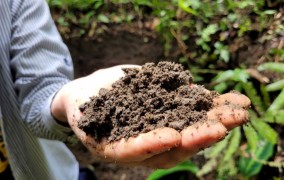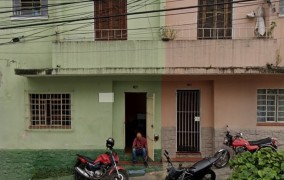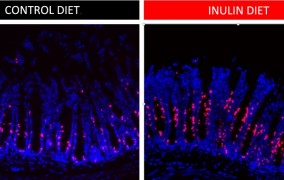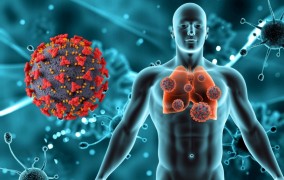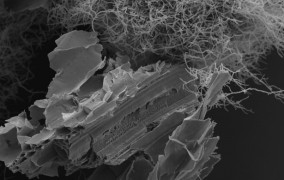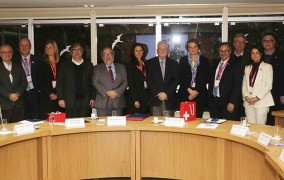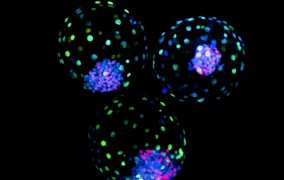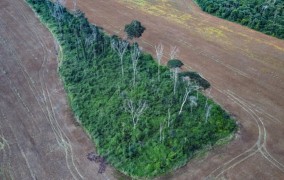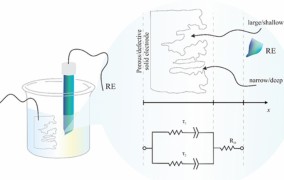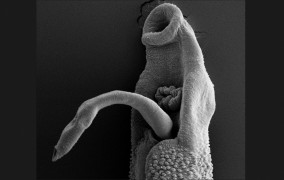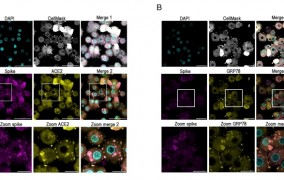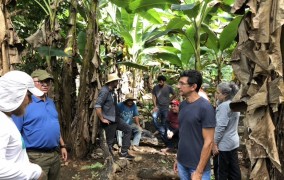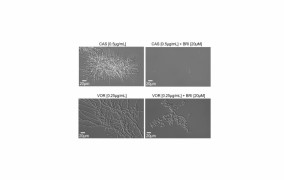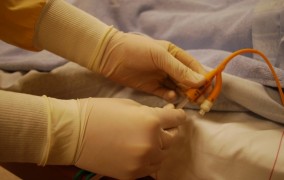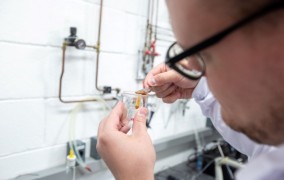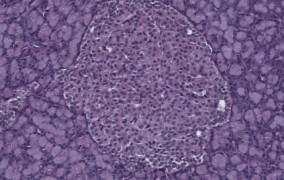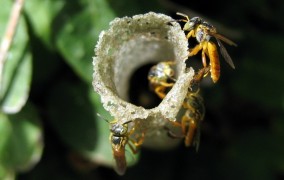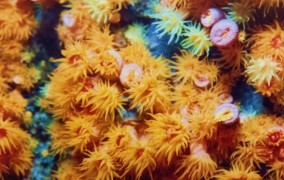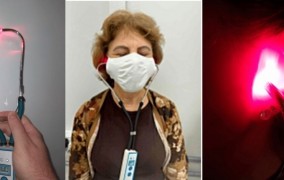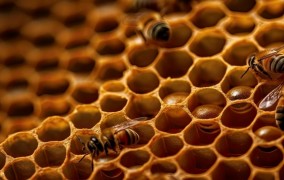
Search: 4362 news
-
Amazon dark earth boosts tree growth as much as sixfold
2023-08-02Brazilian scientists analyzed the typical soil composition resulting from native management with the aim of developing biotech applications for more effective restoration of degraded areas. -
Three out of every ten meals ordered from the main food delivery app in Brazil come from dark kitchens
2023-08-02The first-ever study of dark kitchens conducted in Brazil collected data on 22,520 establishments located in three cities in São Paulo state and listed by iFood. An article on the study offers a profile of these delivery-only restaurants, which proliferated during the pandemic. -
About Us
2023-08-01 -
Consumption of soluble dietary fiber favors renewal of intestinal epithelial cells, study shows
2023-07-26In experiments conducted at the State University of Campinas (Brazil), intestinal epithelial stem cells proliferated more in mice fed an inulin-rich diet than in mice given insoluble fiber. The study also showed that the beneficial effects depended on interaction with gut microbiota. -
Compound reduced inflammation in COVID-19-infected mice without compromising immune response to virus
2023-07-26A team affiliated with a FAPESP-supported research center showed in mice that molecules capable of preventing the peptide C5a from binding to its cellular receptor helped prevent lung damage and other complications typical of severe COVID-19. -
Researchers advance understanding of metabolic processes in fungi essential to 2G ethanol production
2023-07-26Scientists at Brazilian Center for Research in Energy and Materials (CNPEM) investigated enzymes produced by two species of fungus used to break down sugarcane bagasse for production of second-generation ethanol. The goal of the project is to increase the efficiency of this process, which currently depends on imported feedstocks. -
Visiting Swiss delegation advocates new partnerships with FAPESP
2023-07-26Similar programs and FAPESP’s pragmatism arouse interest in intensifying collaboration and joint calls for proposals involving research centers in Switzerland and São Paulo. -
Research with Brazilian participation is first to create models of bovine embryos
2023-07-26The results pave the way for breeding of cattle with selected traits. Preliminary work findings for human embryo models recently published by international groups could contribute to the understanding of congenital defects and early pregnancy loss. -
Degradation caused by human activities affects 38% of Amazon, study shows
2023-07-26An article in Science by 35 researchers affiliated with institutions in Brazil and elsewhere shows that carbon emissions resulting from forest degradation are equivalent to emissions from deforestation. The authors analyzed degradation due to fire, edge effects, illegal logging and extreme drought. -
Brazilian coast is warmer and is having more frequent extreme temperature events, study shows
2023-07-19An article by scientists at the Federal University of São Paulo shows that the South and Southeast of Brazil are the most affected regions, and that Espírito Santo is the state most affected by waves of heat and cold. -
New theoretical model paves way for more efficient supercapacitors
2023-07-19The new model is capable of providing a realistic analysis of the experimental data for a supercapacitor in which internal energy losses are considered. -
Novel targets identified for treatment of schistosomiasis
2023-07-19Researchers at Butantan Institute in São Paulo, Brazil, discovered that survival of the parasitic worm that causes the disease depends on expression of a specific type of RNA. In animal trials, inhibition of the molecule interrupted the infection. -
SARS-CoV-2 infects liver, stimulating glucose production and contributing to severe form of COVID-19
2023-07-19A study conducted at the University of São Paulo and reported in PNAS explains hyperglycemia in hospitalized patients and shows how SARS-CoV-2 causes symptoms similar to those of diabetes. -
Interstate collaboration advocates economic alternatives to deforestation in Brazilian Amazon
2023-07-19Strategies for reconciling forest conservation and income generation for families living on Chico Mendes Extractive Reserve in Acre state are the focus of a project in which local scientists are collaborating with colleagues from the states of São Paulo and Pará. The project is part of the Amazon+10 Initiative. -
Biofuels are crucial to the energy transition, but misinformation must be overcome
2023-07-19The view was expressed by participants in a discussion on “Bioenergy’s major contribution to the energy transition” organized by the FAPESP Bioenergy Research Program. -
Novel compound combats drug-resistant fungi when combined with commercially available medications
2023-07-12Combinations of antifungals with brilacidin, a drug undergoing clinical trials for other diseases, cleared up lung infections in animals. On its own, the candidate drug treated a fungal disease of the cornea that affects millions of people worldwide. -
Mortality rate from Candida infections remains high in Brazil, despite therapeutic advances
2023-07-12A study conducted at the Federal University of São Paulo shows that 20% of patients with bloodstream infections are not treated, and at least half of those treated die. Diagnostic techniques must improve, the authors warn. -
Research group develops biodegradable film that keeps food fresh for longer
2023-07-12The material was designed by Brazilian researchers and includes a derivative of limonene from citrus rind, blended with chitosan, a biopolymer from exoskeletons of crustaceans. -
Adipose tissue hormone protects cells that secrete insulin and reverses damage associated with obesity
2023-07-12Researchers at the University of São Paulo observed the effects of adiponectin in trials involving blood samples from lean and obese subjects. The discovery points to novel routes to treatment for type 2 diabetes and related dysfunctions. -
Brazilian scientists advance their understanding of the physics behind star superflares
2023-07-12Superflares release huge amounts of energy. If they occurred on our Sun, they would have a massive impact on Earth. The researchers studied two K-type stars and concluded that eruptions of this magnitude are due to their magnetic complexity. -
Besides yields, climate change reduces nutritional value of food crops
2023-07-12The warning was delivered by Marta Vasconcelos, a biologist affiliated with the Portuguese Catholic University, during the third event in the 2023 series of FAPESP Lectures. -
Study shows Kant’s influence on Georges Canguilhem, who anticipated concepts current in medicine today
2023-07-05Contrary to the predominant view held since the eighteenth century, the French philosopher and physician saw the organism as a totality interacting with its environment rather than a mere aggregation of parts whose functioning depended only on the right amount of organic substances. -
Entrepreneurial training program helps startups become profitable businesses
2023-07-05A novel methodology used in the 24th edition of the PIPE High-Tech Entrepreneurial Training Program will guide 21 innovative startups in the process of developing customers and refining their business models, among other competencies. -
Cigarette smoke and HPV have synergistic effects on cells, heightening the risk of head and neck cancer
2023-07-05The discovery was made by researchers affiliated with institutions in Brazil and Chile. Their analysis of oral cells that expressed human papillomavirus proteins and were exposed to cigarette smoke pointed to an increase in levels of an enzyme associated with tumor progression and DNA damage. -
Mites in stingless bee colonies increase bee survival rates even in the presence of insecticide
2023-07-05The study by Brazilian researchers showed that the microscopic arachnids rid stingless bee colonies of excessive fungi and serve as food for the larvae of these honey-making insects. -
Compound produced by invasive marine coral eliminates parasite that causes Chagas disease
2023-07-05Trials involving mammalian cells were conducted by researchers in São Paulo state, Brazil. Although it endangers biodiversity along much of the coast, sun coral could be an ally in combating Chagas disease, which affects 7 million people worldwide and lacks effective treatment. -
Study suggests resistance training can prevent or delay Alzheimer’s disease
2023-07-05Experiments involving mice and conducted by Brazilian researchers showed four weeks of training with weights to be sufficient to reverse behavioral and physical alterations characteristic of the disease. -
Laser therapy is most effective treatment for tinnitus, study finds
2023-06-28Brazilian researchers compared the therapies used most frequently for tinnitus, which affects some 750 million worldwide. -
Propolis improves immunity, reduces free radicals and attenuates chronic inflammation in HIV patients
2023-06-28A study of 40 asymptomatic subjects living with HIV conducted at São Paulo State University showed that a daily dose of 500 mg was safe and helped combat premature aging. -
FAPESP joins forces with France’s CNRS to bolster new International Panel on Ocean Sustainability
2023-06-28Soon to be officially launched, IPOS is a coalition of 16 research institutions, research funders and universities. Its mission will be to bridge the science-policy divide and help protect the world’s ocean environment.
Most popular
-
Amazon scorpion toxin kills breast cancer cells
2025-06-18
-
Spending more than 3 hours a day sedentary worsens teens’ mental health
2025-02-20
-
Climate change could drastically reduce aquifer recharge in Brazil
2025-09-17
-
Microplastics may affect bone health
2025-09-17
-
‘Science alone will not save us’: Paulo Jannuzzi highlights the need for republican values
2025-09-17
-
Butantan Institute says its dengue vaccine protects against serotype 3
2025-02-05
-
FAPESP aims to boost the development of quantum technologies in Brazil
2025-01-15
-
Molecule reverses cognitive deficits associated with aging and dementia in animal tests
2025-05-12
-
Ants defend plants from herbivores but can hinder pollination
2025-09-15
-
Personality traits influence the development of insomnia
2025-05-19





